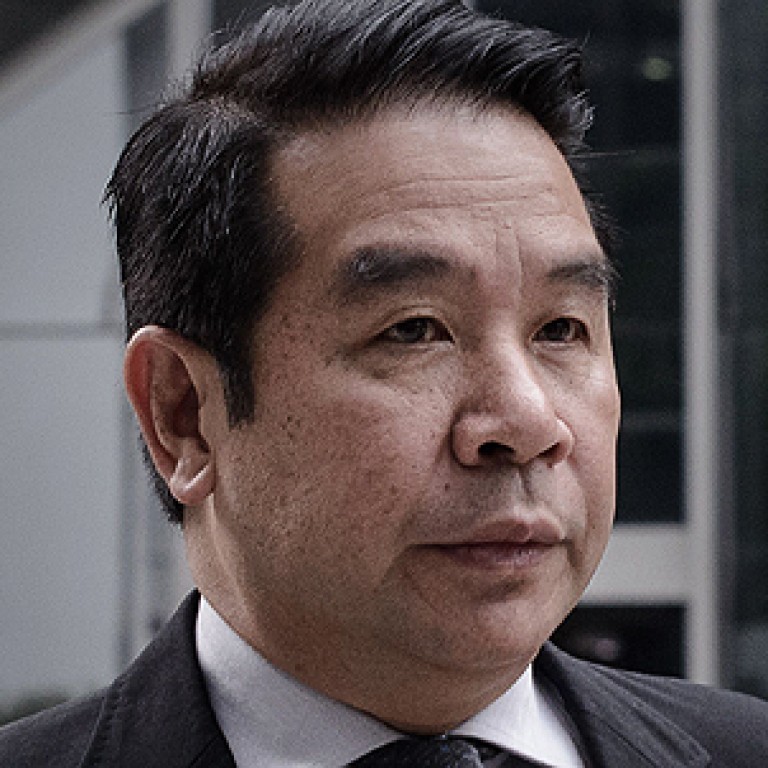
Firms on Carson Yeung's bank statements not investigated
Police investigator says officers did not check all companies that were paying into soccer club owner's accounts, but they had suspicions
Police officers investigated only 11 of 19 securities companies appearing on bank statements in the money laundering case of Birmingham City Football Club boss Carson Yeung Ka-sing, a court heard yesterday.
Police financial investigator Johnny Kwan Sui-lun told the District Court that he applied for production orders against 11 securities companies, including Kingston Finance and Emperor Securities, before a High Court judge in June 2008.
A production order requires the custodian of documents to deliver or make available the documents to law enforcement officials within a specified period.
Yeung is being tried over five counts of money laundering totalling HK$721 million. The alleged incidents took place from January 2001 to December 2007. He denies the charges.
At one time Yeung and his father claimed to be earning nothing, but their income later rocketed to HK$721 million in seven years.
Five bank accounts with Wing Lung Bank and HSBC are at the centre of the trial.
When defence counsel Graham Harris SC asked Kwan if he had any recollection of the other eight security companies that were also indentified in Yeung's bank statements, he said he had no recollection of seven of them.
When we saw a large amount of cash going in and out of the five accounts, with no accumulated deposits, we [at the time] had reasonable grounds to suspect
Kwan also told the court that there was no application of production orders against the eight companies.
Asked by prosecutor John Reading SC why orders were not obtained against the eight companies, Kwan said: "I couldn't even see they were securities companies. When I applied for the production orders, I got advice and instruction from my superior."
The court heard that the police had reasonable cause to suspect Yeung had committed the offence between the end of 2008 and 2009.
"When we saw a large amount of cash going in and out of the five accounts, with no accumulated deposits, we [at the time] had reasonable grounds to suspect," Kwan said.
Asked by Harris why the arrest was made two years after the police had reasonable grounds for suspicion in 2011, Kwan said the officers needed time to garner more information and seek legal advice.
The defence lawyers suggested it was unfair to arrest Yeung more than two years after the police had reasonable cause to suspect him of offences.
Meanwhile, the court heard that Yeung pleaded guilty before a magistrate to failing to disclose his holdings in Cedar Base Electronic (Group) in 2004.
He was, however, acquitted of market manipulation.
Kwan said he was aware of the Cedar Base case six months after he took over the investigation. Asked if the Cedar Base case had any bearing on the current case, Kwan said: "That thought didn't cross my mind."
Asked by Harris if he approached the case on the basis that Yeung had experienced a rags-to-riches tale, Kwan said the police officers looked only at the source of the wealth, however rich the defendant was.
The trial will continue on Monday.
